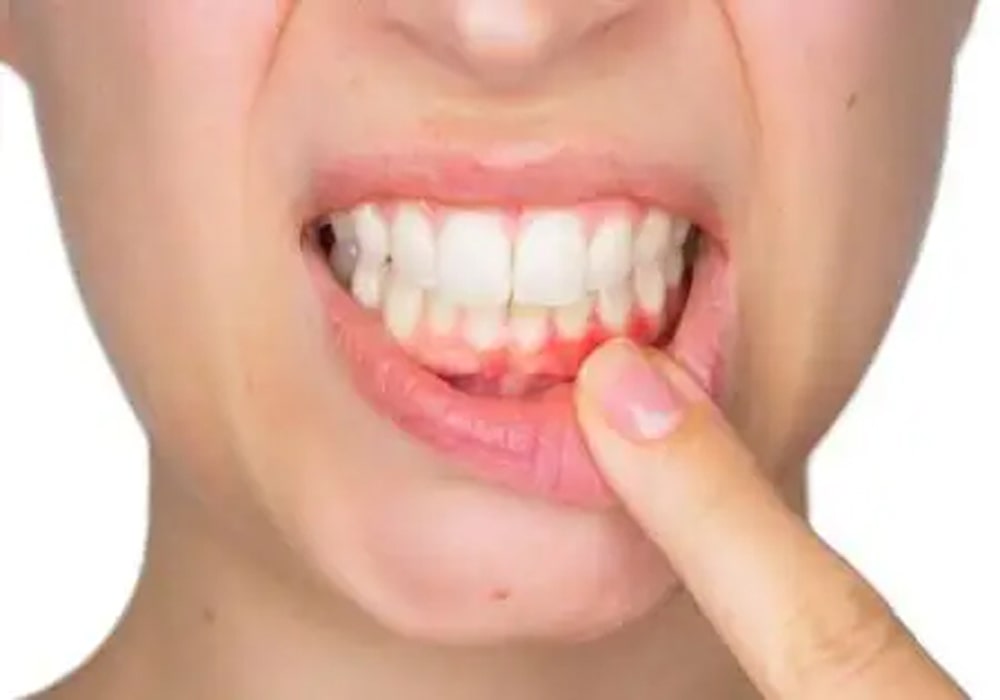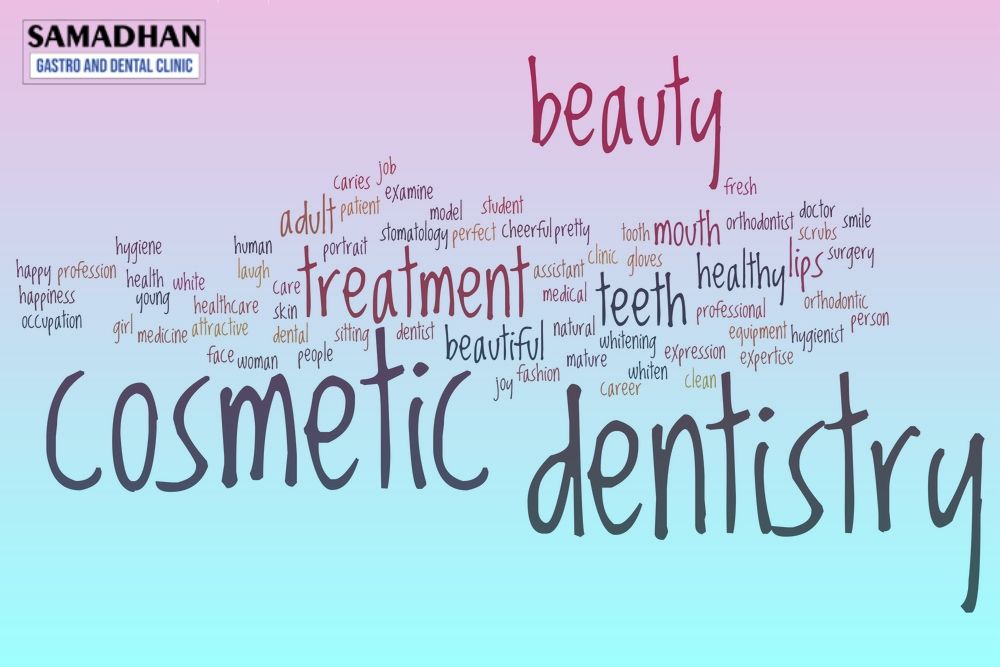Pyorrhea: Symptoms, Causes, and Treatment

Are you experiencing bleeding gums, pain while chewing, and bad breath? Do you feel embarrassed when people turn away from you due to your bad smelling mouth? Well! Then you may be suffering from a serious condition called pyorrhoea and you need to see your dentist immediately, if not seen already.
What is Pyorrhea?
Pyorrhea is known by several names such as periodontitis, gingival disease, or periodontal disease. Pyorrhea is an oral health condition characterized by a serious infection of the gums. It results due to the continuous growth and accumulation of bacteria on teeth and gums. As the disease progresses, the bones and teeth also get damaged leading to more severe complications. However, if periodontitis disease is treated early, and proper hygiene is maintained then the damage to the teeth and bones can be stopped.
What Are The Types Of Pyorrhea?
Pyorrhea, also known as periodontal disease or gum disease, encompasses various types, each with its specific characteristics. Here are the primary types of Pyorrhea:
- Gingivitis
Gingivitis is the initial and mildest form of gum disease. It is characterized by inflammation of the gums, causing redness and swelling. Gums may bleed during brushing or flossing. Gingivitis is often reversible with proper oral hygiene.
- Chronic Periodontitis
Chronic periodontitis is a more advanced stage of gum disease. It involves inflammation of the supporting structures of the teeth, leading to the formation of pockets between the teeth and gums. This can result in bone loss over time.
- Aggressive Periodontitis
Aggressive periodontitis is characterized by the rapid progression of bone destruction and attachment loss around the teeth. It can affect an otherwise healthy individual and may lead to severe bone loss.
- Necrotizing Periodontal Disease
This severe form of gum disease involves the death of gum tissues, periodontal ligaments, and supporting bone. It is often associated with systemic conditions such as malnutrition or diseases that compromise the immune system, like HIV.
Note- For effective treatment it is important to understand the type of Pyorrhea. Early stages like gingivitis can often be addressed with improved oral hygiene practices, while more advanced stages may require professional intervention. If you suspect any signs of gum disease, such as bleeding gums, persistent bad breath, or changes in gum appearance, it's essential to consult with a dentist for proper diagnosis and treatment.
How Can Dental Pyorrhea Be Prevented?
Preventing dental pyorrhea, or gum disease, involves adopting good oral hygiene practices and making lifestyle choices that promote overall oral health. Here are some preventive measures:-
- Regular and Proper Brushing
- Brush your teeth at least twice a day using a fluoride toothpaste. Use a soft-bristled toothbrush and ensure you clean all surfaces of your teeth using gentle, circular motions.
- Brush for at least two minutes to ensure thorough cleaning.
- Flossing
- Daily Flossing: Floss between your teeth once a day to remove plaque and debris that your toothbrush may not reach. This helps prevent the formation of pockets between the teeth and gums.
- Regular Dental Check-ups
- Professional Cleanings: Visit your dentist regularly for professional cleanings. Dental professionals can remove plaque and tartar that regular brushing and flossing may miss.
- Early Detection: Regular dental check-ups allow early detection of any signs of gum disease, enabling timely intervention.
- Balanced Diet
- Nutrient-Rich Foods: Consume a balanced diet rich in vitamins and minerals. Foods high in antioxidants, like fruits and vegetables, can contribute to gum health.
- Limit Sugary Foods: Reduce the intake of sugary foods and beverages, as sugar promotes the growth of bacteria that contribute to gum disease.
- Avoid Tobacco
- Smoking Cessation: Avoid smoking or using tobacco products. Smoking is a significant risk factor for gum disease and can hinder the success of treatment.
- Manage Stress: Chronic stress can contribute to oral health issues, including gum disease. Practice stress-reduction techniques, such as exercise, meditation, or yoga.
- Hydration- Drink plenty of water throughout the day. Water helps flush away food particles and bacteria, contributing to a cleaner mouth.
- Use Antiseptic Mouthwash- Consider using an antiseptic mouthwash. Choose an alcohol-free formula to avoid dryness and irritation.
- Prompt Treatment of Dental Issues- Address any dental issues promptly. Early treatment of cavities or dental infections can prevent them from progressing to gum disease.
- Genetic Predisposition- Be aware of your family history. If gum disease runs in your family, you may be more prone to it, and extra vigilance with oral hygiene is crucial.
By incorporating these practices into your daily routine and seeking professional dental care, you can significantly reduce the risk of dental pyorrhea and maintain optimal oral health.
What are the Symptoms of Pyorrhea?
Periodontitis results due to poor dental hygiene. Improper oral hygiene due to irregular cleaning of your teeth or unable to reach the deeper or inner surface of the tooth may result in plaque build-up and lead to pyorrhea. The symptoms of pyorrhea usually depend on the stage of the disease and its progression. Some of the general symptoms of pyorrhoea include:
- Bleeding gums which is usually observed while brushing the teeth or flossing
- Changes in the position of your teeth or loose teeth
- Gums pulling back from the tooth surface exposing the root surfaces of your teeth.
- Swollen, red, or tender gums.
- Development of plaque or sticky film like tartar on the surface of the teeth.
- Pain accompanied while chewing food.
- The decay of tooth and tooth loss
- Bad breath or foul/metallic taste in your mouth
- Triggering of inflammation throughout your body
- Extra spaces between the teeth can be seen.
The early stages of periodontitis are usually not noticeable and your dentist will likely be the first one to notice it.
What causes periodontitis?
There are various stages of periodontitis and it usually starts when bacteria in the mouth grows and starts to multiply on your teeth. Most of these bacteria are considered to be harmless but when proper hygiene is not maintained these bacteria tend to form plaque- a sticky film like material composed of bacteria. If this condition is left untreated, then the plaque build-up can eventually advance to pyorrhea. So, it’s important to consult your dentist for pyorrhea treatment before it’s too late. Below is the detailed description of how periodontitis develops and is caused:
- Pyorrhea symptoms may appear due to poor oral hygiene, the bacteria in your mouth proliferate and multiply to form a sticky substance known as dental plaque.
- If the plaque is not removed in time from the surface of the tooth, it grows and deposits certain minerals on the tooth surface over time.
- This mineral deposit formed is referred to as tartar, which promotes more bacterial growth toward the root surface of the tooth.
- The body’s immune response is triggered by this bacterial growth leading to inflammation in your gums.
- The inflammation in the gum of the tooth causes its disruption over time, which leads to the development of receding gums or a periodontal gap in between the gum and the root.
- This in turn leads to severe infection where harmful anaerobic bacteria try to colonize in the formed periodontal pocket and start to multiply over there.
- The bacterial growth is followed by the release of toxins that can damage the internal structure of the mouth like gums, teeth, and supporting jaw bone or other structures.
Risk factors that can increase the risk of periodontitis include:
- Smoking
- Diabetes especially type 2
- Overweight/obesity
- In women who are pregnant, menstruating, or have reached menopause are at higher risk of getting periodontitis due to hormonal changes that make the gums more sensitive
- HIV/Leukemia which may alter the immunity
- Medications causing dry mouth
- Hereditary reasons
- Poor nutrition and deficiency of various vitamins like vitamin C014587901*4
How is pyorrhea diagnosed?
Early stages of pyorrhea may not show any significant symptoms. Only your dentist will be able to detect any pyorrhoea symptoms during a routine dental examination. So, it’s important to visit your dental doctor on a daily basis.
During diagnosis, your oral surgeon may insert a tiny probe into your mouth to check and inspect the presence of any pockets in your gums. The dentist may also scrape a certain amount of tartar or plaque from the surface of your tooth and may recommend you to undergo a dental X-ray or refer to an expert dental surgeon.
What are treatment options available for pyorrhea treatment?
The primary pyorrhea treatment involves removing the dental plaque from the surface of the tooth/gums. The following are some treatment options recommended in pyorrhea treatment.
-
Maintaining proper Oral hygiene practices
In order to reduce the number of bacteria in your mouth, your doctor will ask you to follow certain practices. Your dentist will advise you on how to use toothbrushes and keep your teeth and gums clean. They may also recommend you other oral hygiene products like mouthwash or water pick that can help treat pyorrhea.
Few other tips that can keep your teeth healthy include:- Use of electric toothbrush to clean your tooth more effectively
- Dental flossing once/twice a day to remove plaque.
- Consult your dentist for tooth cleaning at least once a year
- Quit smoking and chewing tobacco.
-
Professional cleanings
The procedure for pyorrhea treatment involves removing excessive plaque/tartar from the tooth surface and its roots. During the procedure, your dentist will polish the teeth and try treating them with antiseptic agents like fluoride. In order to promote healing a deep cleaning of periodontal pockets is required. -
Antibiotics
Antibiotics may also be prescribed in some cases, to halt the progression or growth of the bacteria on the surface of the tooth. Your doctor may prescribe you these antibiotics in the form of a mouthwash, gel, oral tablet, or a capsule. -
Follow-up appointments
Follow-up appointments may be required every 3-6 months to evaluate treatment success. In case, the condition is not controlled your dentist may refer you to an expert surgeon or you have to undergo surgery. -
Surgery
Even after the pyorrhea treatment with antibiotics and cleaning, if the inflammation tends to persist then your dentist may recommend you to undergo a surgical procedure known as flap surgery. The surgery aims to remove and clean any deposits formed under your gums. During the procedure, your doctor may inject anesthesia and your gums are lifted to access the roots to be cleaned. Afterwhich, your gums are then sutured back into the place. In case of any bone loss, bone grafting surgery may be done.
Why Choose Samadhan Clinic?
Numerous clinics in Delhi offer pyorrhea treatment. You just need to go through all the factors and check the best dental clinic in Delhi. Samadhan clinic in Delhi offers the best treatment for pyorrhea. With the state of the art facilities and highly skilled and experienced surgeons around the world, the clinic delivers the best treatment options for all your dental problems. Your oral/dental surgeon will suggest the best possible treatment for your pyorrhea related problem.

